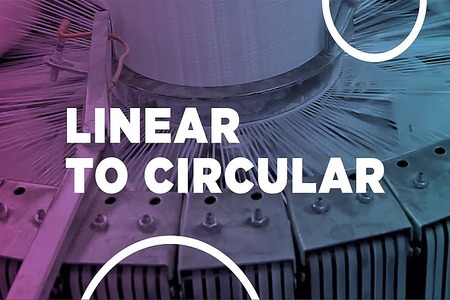
Researchers transform carbon fiber waste into superior materials
YarnsandFibers News Bureau 2024-12-06 16:45:38 – GermanyTo address the significant amounts of carbon fiber waste, the German Institutes of Textile and Fiber Research Denkendorf (DITF) have developed specialized tapes made from recycled carbon fibers (rCF). These tapes can be reused in demanding applications such as automotive structural parts.
DITF has spent 15 years refining traditional spinning techniques to work with rCF. Their goal is to create rCF products with improved mechanical properties so that they can replace new fibers in structural applications. This would make CFRP materials genuinely recyclable and more sustainable.
To replicate the qualities of new carbon fibers, it is essential to straighten and align recycled fibers. One effective method is creating highly oriented tapes. This involves first mixing recycled carbon fibers with thermoplastic fibers like polyamide 6. The mixture is then separated and aligned using a modified carding process. This process produces a fiber web that is shaped into a sliver and used to form tapes. Drawing the fiber sliver further aligns the fibers. Finally, the sliver is shaped under tension, and the thermoplastic fibers are melted and solidified to create continuous tape structures.
This innovative process developed by DITF was tested under the "Infinity" research project to create a sustainable recycling system for CFRP. The resulting material achieved 88% of the strength and stiffness of virgin fibers. A life cycle analysis revealed that using pyrolysis fibers reduces global warming potential by 49%, while recycling production waste cuts it by 66%.
Market Intelligence
Ask for free sample Report

experience
Customer Base
dedicated team
Countries Served Worldwide









